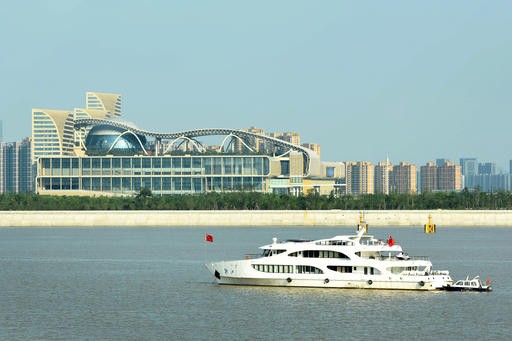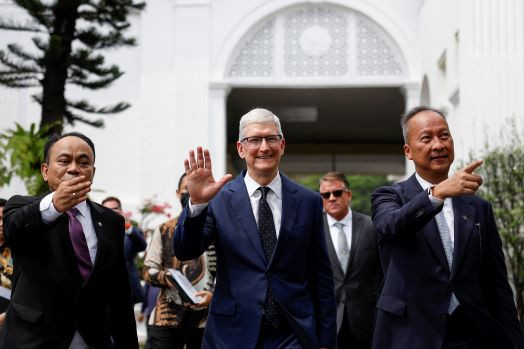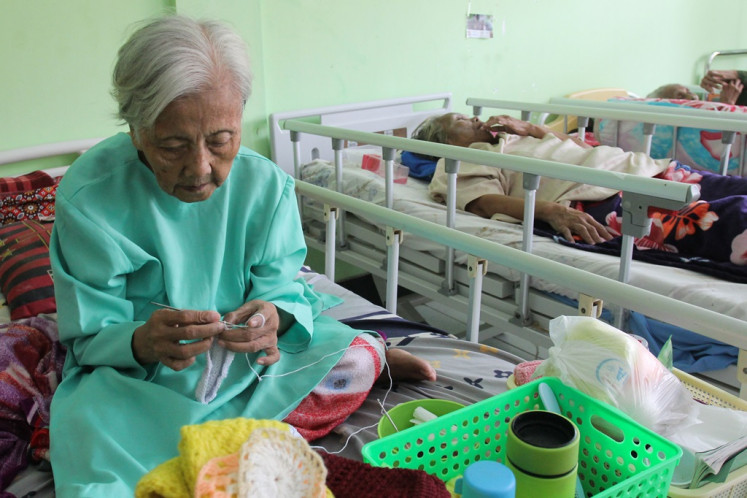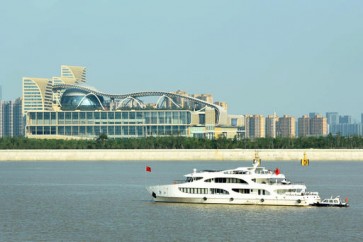INSIGHT: Globalization, G20 and the role of East Asia
The situation also opens up an opportunity for East Asian countries to increase their roles and to demonstrate their willingness to fight against protectionism.
Change Size
 Chinese police ship patrolled near the main venue which held the G20 summit in Hangzhou in east China's Zhejiang province, Aug. 18, 2016. (Chinatopix via AP/-)
Chinese police ship patrolled near the main venue which held the G20 summit in Hangzhou in east China's Zhejiang province, Aug. 18, 2016. (Chinatopix via AP/-)

This weekend, the leaders of twenty of the biggest economies in the world will gather in Hamburg, Germany, to discuss various global issues, including terrorism, climate change and trade. With 85 percent of the world’s gross domestic product (GDP) and 80 percent of world trade in the control of this group, G20 Summit agendas have always greatly influenced global policy discourses. But this particular summit might become a critical event for the group, and also for the world, due to the divergent policy perspective of the current United States administration.
While the G20 Summit was initiated to deal with financial market problems, it has evolved into a forum to discuss various aspects of global economic governance. Among the issues that have always been discussed intensively by member countries are economic openness and free trade. These have been at the heart of the group’s communique in every meetings since its first summit in 2008.
Although many indicators, such as Global Trade Alerts, recorded an acceleration of trade protectionist measures in many G20 economies, the spirit of promoting an open economy remains strong, despite clear political differences among members. The summits and other related meetings have provided a medium for major economies to coordinate responses to the crisis and to avoid extreme protectionism, like what happened in the Great Depression of 1930s. It has greatly contributed to preventing the situation from worsening and prolonging the crisis.
However, US President Donald Trump’s “America First” policy has the potential to change that spirit of anti-protectionism. Trump explicitly expressed his intention to withdraw from the current multilateral trading system. Earlier this year, Trump also mandated a study to look at the implementation of more restrictive measures on major US trading partners, which are mainly members of the G20. It is likely that the US would oppose initiatives that include statements in support of free trade and multilateral governance.
Its position to reject such a statement in the G20 Financial Ministers Meeting in March gives stronger indication for a possible refusal in the summit. The two-day meeting broke the decade long tradition to fight protectionism and only came up with a bland reference to “strengthen the contribution of trade to our economies.”
This is why the upcoming summit would be very timely and critical in strengthening G20 members’ commitments to a more open global economy. As this year’s president of the G20, Germany has reiterated its intention to keep the spirit of free trade going in this Summit. Other countries, such as Canada and European countries, have also expressed their interest in pushing the free trade agenda.
The situation also opens up an opportunity for East Asian countries to increase their roles and to demonstrate their willingness to fight against protectionism. East Asia has greatly benefited from the globalization process that has taken place in the last several decades. Around 50 years ago, the region was among the poorest in the word, but nowadays, it accounts for more than one-third of the world economy. Many countries in the region have grown by the average rate of more than 6.5 percent annually in the last two decades, while the world has only grown by 3.3 percent. In China alone, around 680 million people have been taken out of poverty in 1981 to 2010, while Indonesia also managed to reduce its poverty rate to 11 percent from 29 percent in 1980.

















